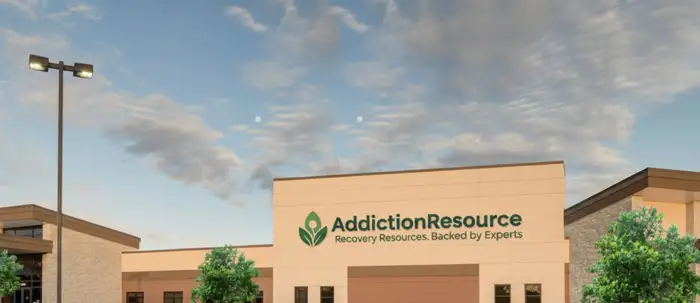

About us
Cheyenne Center, located in Houston, Texas, is a nonprofit organization specializing in the treatment of drug and alcohol addiction. As part of the Texas Health and Human Services Program, they collaborate closely with the Texas Department of Criminal Justice to offer alternative sentencing programs aimed at addressing addiction.
Cheyenne Center provides both residential treatment for men and co-ed outpatient treatment services.
The Residential Program at Cheyenne Center is designed for men requiring a structured and supportive environment to achieve sobriety. Typically lasting for 30 days, this program emphasizes physical, emotional, and spiritual recovery. It includes individual therapy, group therapy, and family therapy sessions, tailored to address the unique needs of each resident. Medications may be prescribed as needed, with a focus on holistic wellness that includes promoting good nutrition and encouraging regular exercise.
Cheyenne Center’s approach combines evidence-based practices with compassionate care, aiming to empower individuals in their journey towards lasting recovery from addiction.
Cheyenne Center provides sentencing alternatives for individuals facing incarceration due to drug and alcohol offenses through a collaborative program with the Texas Department of Criminal Justice. This initiative typically spans 90 days and involves ongoing communication with judges, attorneys, and probation and parole officers throughout the treatment process.
Their Outpatient Program caters to individuals who can return home in the evenings while undergoing treatment. This program features a comprehensive array of services including psychoeducational groups, process groups, family groups, individual counseling sessions, HIV education and testing, tobacco awareness classes, domestic violence education, and family education on drugs, alcohol, and the recovery process. The outpatient program is structured to last between six to nine months, providing continuous support and education to help individuals maintain sobriety and enhance their overall well-being.
Insurance
Payment Options
- Cash or self-payment
- Medicaid
- Medicare
- Federal, or any government funding for substance use treatment programs
- Sliding fee scale (fee is based on income and other factors)
- Payment assistance (check with facility for details)
- SAMHSA funding/block grants
- Self-pay options
- Sliding scale payment assistance
- Financial aid
 Addiction Resource Score
Addiction Resource Score
Scoring is assigned by a proprietary system which helps surface key metrics that determine quality. The 10-point scale factors in categories such as operations, customer satisfaction, and trust metrics.
8.3
Out of 10
We understand that choosing an addiction treatment center can be overwhelming, especially with so many options, promises, and marketing messages. That’s why we’ve developed a clear, standardized rating system designed to cut through the noise and highlight what truly matters: safety, quality of care, and transparency. Our goal is to give individuals and families the information they need to make confident, informed decisions during a critical time.
In this guide, we explain exactly how we rate treatment centers—from accreditation and staff credentials to therapy options, facility environment, and family involvement. You’ll see how we assign scores, award badges, and update listings to ensure accuracy and fairness. Most importantly, our system focuses on elevating centers that prioritize ethical, evidence-based care, not just those with the best marketing. This way, you can trust that the ratings you see reflect meaningful standards that help you find the right fit for lasting recovery.
Treatment
Treatment Options
- Comprehensive substance use assessment
- Interim services for clients
- Outreach to persons in the community
- Screening for mental disorders
- Screening for substance use
- Complete medical history/physical exam
- Comprehensive mental health assessment
Conditions Treated
- Alcoholism
- Mental health treatment
- Substance use treatment
- Co-occurring Disorders
- Opioid Treatement
Levels of Care
- Hospital inpatient/24-hour hospital inpatient
- Short-term residential
- Hospital inpatient treatment
- Aftercare
- Halfway house
Treatment Modalities
- Cognitive behavioral therapy
- Substance use disorder counseling
- Smoking/vaping/tobacco cessation counseling
- Group counseling
- Family counseling
- 12-step facilitation
- Intervention Services
- Motivational interviewing
- Anger management
- Relapse prevention
- Treatment for other addiction disorder
- Holistic Treatment
- Individual psychotherapy
- Trauma-related counseling
License and Accreditation
- Federally Qualified Health Center
- SAMHSA certification for opioid treatment program (OTP)
- State department of health
Facility Operation
- Private non-profit organization
- Private for-profit organization
Screening
- Drug or alcohol urine screening
- HIV testing
- STD testing
- TB screening
- Testing for Hepatitis B (HBV)
- Testing for Hepatitis C (HCV)
Ancillary Services
- Case management service
- Integrated primary care services
- Suicide prevention services
- Early intervention for HIV
- Mental health services
- Social skills development
- Transportation assistance
Opioid Treatment
- Accepts clients using MAT but prescribed elsewhere
Transitional Recovery Services
- Mentoring/peer support
- Housing services
- Discharge Planning
- Employment counseling or training
- Self-help groups
- Naloxone and overdose education
- Outcome follow-up after discharge
- Recovery coach
Age Groups Accepted
- Young adults
- Adults
- Seniors
Gender Accepted
- Male
Smoking or Vaping
- Smoking not permitted
- Vaping not permitted
Hope Without Commitment
Find the best treatment options. Call our free and confidential helpline
Most private insurances accepted




 FindTreatment.gov
FindTreatment.gov